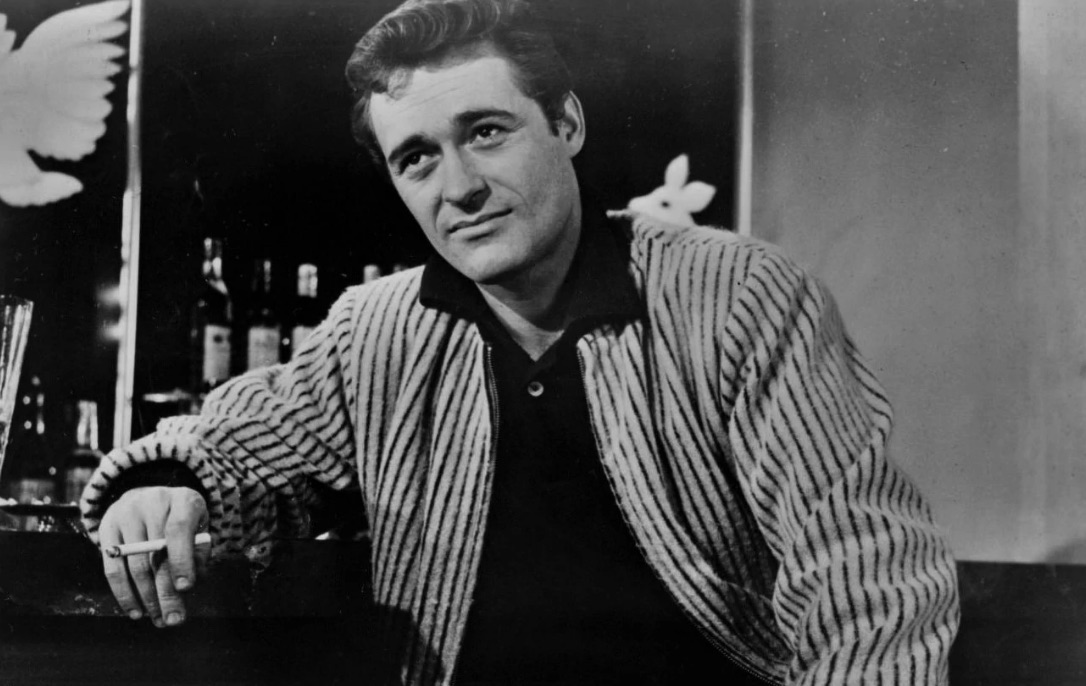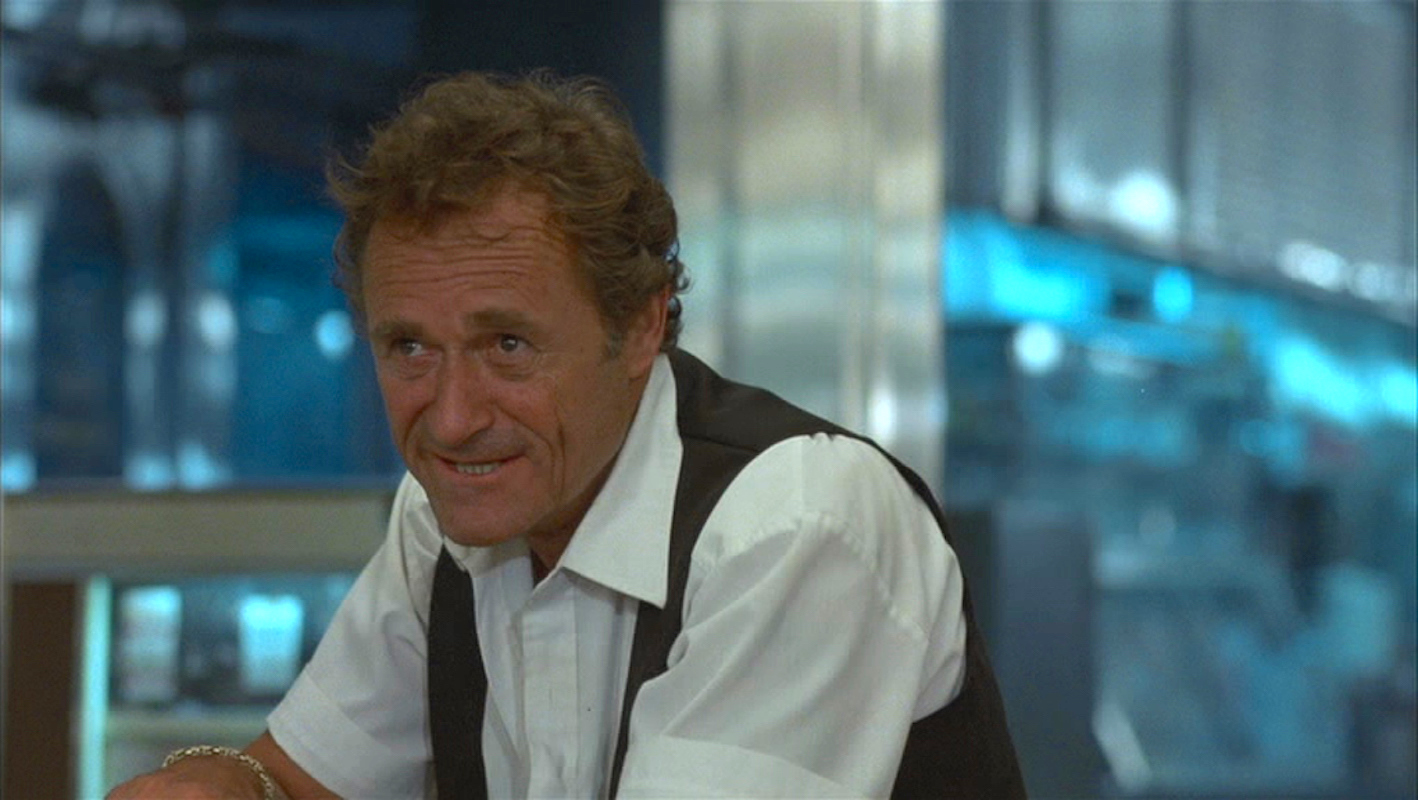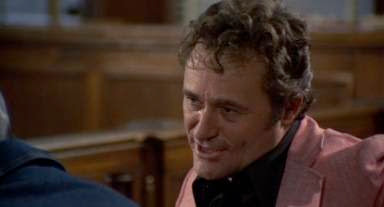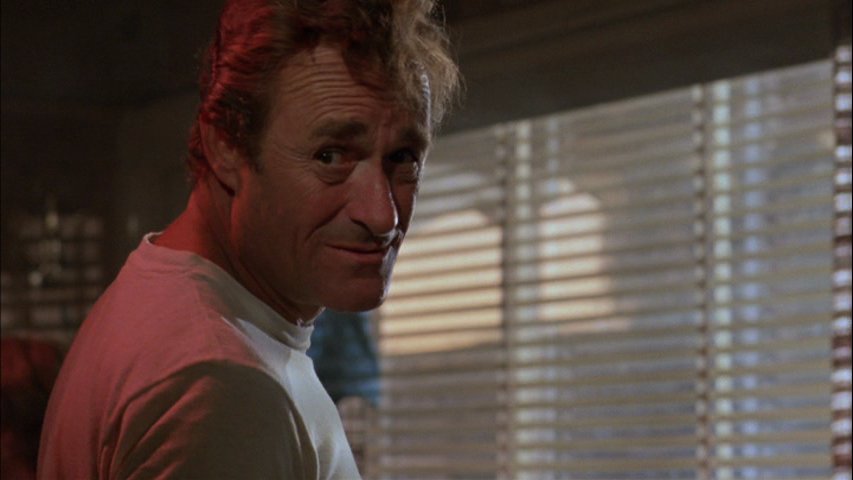DICK MILLER & HIS DIRECTORS: LIFE AS HOLLYWOOD'S MOST WANTED CHARACTER ACTOR
He was the ultimate “Oh, it’s that guy!” actor. Dick Miller, who took a handful of small but vivid character turns and forged an indelible career that will clock in at 182 credits, has passed away at age 90. He leaves behind an adoring fan base dating back nearly six decades, a period that has seen him work with most of the great American directors of his generation. For a man who never found above-the-title fame, Dick Miller was a beloved presence on-set for some of the great cinematic visionaries…

His Career with Roger Corman: The legendary B-movie maven gave a 26-year-old Miller his first credit in the 1955 western, Apache Woman, opposite Lloyd Bridges. Low-budget oaters were staples for Corman, who would use Miller again in The Oklahoma Woman (1956), Gunslinger (1956) and A Time for Killing (1967).  Miller remained a working actor in Corman’s ensemble for over a decade, the actor willing to work across all genres, including science-fiction (Not of This Earth, 1957; War of The Satellites, 1958); horror (The Undead, 1957; A Bucket of Blood,1959; The Little Shop of Horrors, 1960, pictured right; Premature Burial, 1962; The Terror, 1963; X: The Man With the X-Ray Eyes,1963); rock’n’roll teen dramas (Rock All Night, 1957; Sorority Girl, 1957; Carnival Rock, 1957); historical epics (Atlas, 1961); bad boy biker pics (the iconic The Wild Angels, 1966, opposite Peter Fonda); and the LSD-romp, The Trip (1967).
Miller remained a working actor in Corman’s ensemble for over a decade, the actor willing to work across all genres, including science-fiction (Not of This Earth, 1957; War of The Satellites, 1958); horror (The Undead, 1957; A Bucket of Blood,1959; The Little Shop of Horrors, 1960, pictured right; Premature Burial, 1962; The Terror, 1963; X: The Man With the X-Ray Eyes,1963); rock’n’roll teen dramas (Rock All Night, 1957; Sorority Girl, 1957; Carnival Rock, 1957); historical epics (Atlas, 1961); bad boy biker pics (the iconic The Wild Angels, 1966, opposite Peter Fonda); and the LSD-romp, The Trip (1967).
The Great American Directors of the 1970s: The gruff old master Robert Aldrich bolstered his support cast with Miller on 1968s The Legend of Lylah Clare, but the old school studio directors were making way for the ‘movie brats’ of new Hollywood. And many of those filmmakers had grown up with, and were often schooled  by Roger Corman. Miller had a foot in the door with Corman-alumni Barbara Peeters, with whom he made Summer School Teachers (1974) and Starhops (1978); Paul Bartel, who cast him in Death Race 2000 (1975); Allan Arkush, who bolstered Heartbeeps (1981) and Get Crazy (1983) with Miller; and, not least, Martin Scorsese, who cast the actor in New York, New York (1977) and memorably in After Hours (1985). Miller was at the forefront of the new industry forces, and was soon finding parts in films by ‘wunderkind’ auteurs Robert Zemeckis (I Wanna Hold Your Hand, 1978; Used Cars, 1980); Steven Spielberg (1941, 1979);and, Jonathan Demme (Swing Shift, 1984) and James Cameron (The Terminator, 1984), both trained under Corman's guidance. Ironically, Miller saw out the decade featuring in one of the final films of an old Hollywood heavyweight – Samuel Fuller’s White Dog (1982).
by Roger Corman. Miller had a foot in the door with Corman-alumni Barbara Peeters, with whom he made Summer School Teachers (1974) and Starhops (1978); Paul Bartel, who cast him in Death Race 2000 (1975); Allan Arkush, who bolstered Heartbeeps (1981) and Get Crazy (1983) with Miller; and, not least, Martin Scorsese, who cast the actor in New York, New York (1977) and memorably in After Hours (1985). Miller was at the forefront of the new industry forces, and was soon finding parts in films by ‘wunderkind’ auteurs Robert Zemeckis (I Wanna Hold Your Hand, 1978; Used Cars, 1980); Steven Spielberg (1941, 1979);and, Jonathan Demme (Swing Shift, 1984) and James Cameron (The Terminator, 1984), both trained under Corman's guidance. Ironically, Miller saw out the decade featuring in one of the final films of an old Hollywood heavyweight – Samuel Fuller’s White Dog (1982).
The Films of Jonathan Kaplan: Kaplan and Miller had grown close working at Corman’s New World Pictures. Kaplan (who would direct Jodie Foster to Oscar glory with The Accused, 1988) turned to Miller not  only for his acting skills but a shared work ethic, one that had been refined on Corman’s often unrefined low-budget shoots. They would work together on such grindhouse/drive-in programmers as Night Call Nurses (1972), The Student Teachers (1973), The Slams (1973) and Truck Turner (1974; pictured, right). More mainstream fare followed, with White Line Fever (1975) and Mr Billion (1977). After a short time apart, Kaplan reconnected with Miller for his acclaimed drama Heart Like a Wheel (1983), starring Bonnie Bedelia, and they worked together well into the new decade, on Project X (1987) and Unlawful Entry, (1992). Kaplan also earned Miller his only music-video credit, on the Rod Stewart dance hit, Infatuation , in 1988.
only for his acting skills but a shared work ethic, one that had been refined on Corman’s often unrefined low-budget shoots. They would work together on such grindhouse/drive-in programmers as Night Call Nurses (1972), The Student Teachers (1973), The Slams (1973) and Truck Turner (1974; pictured, right). More mainstream fare followed, with White Line Fever (1975) and Mr Billion (1977). After a short time apart, Kaplan reconnected with Miller for his acclaimed drama Heart Like a Wheel (1983), starring Bonnie Bedelia, and they worked together well into the new decade, on Project X (1987) and Unlawful Entry, (1992). Kaplan also earned Miller his only music-video credit, on the Rod Stewart dance hit, Infatuation , in 1988.
Working with Joe Dante: Another Corman graduate, Joe Dante, like Kaplan and Allan Arkush, had worked the tough shoots with Miller through their formative years. The bond that Dante and Miller formed is one of the most prominent and profound in Hollywood history. Alongside co-director Arkush, Dante and Miller first  worked together on Hollywood Boulevard (1976) and Rock’n’Roll High School (1979, on which Dante contributed uncredited). The Miller/Dante pairing would last four decades on Piranha (1978); The Howling (1981); Twilight Zone: The Movie (1983; pictured, right); Gremlins (1984), for which Miller received a Best Supporting Actor nomination from the Academy of Science Fiction, Fantasy & Horror Films; Explorers (1985); his 1986 episode ‘The Greibble’ of the Spielberg-produced TV anthology Amazing Stories; Innerspace (1987); The ‘Burbs (1989); Gremlins 2: The New Batch (1990); Matinee (1993); The Second Civil War (1997); Small Soldiers (1998); Looney Tunes: Back in Action (2003); Trapped Ashes (segment: Wraparound; 2006); The Hole (2009); and, Burying the Ex (2014). In a statement on his Facebook page, Dante said, “I’m devastated.” “We hit it off and every script thereafter I always looked for a role for Dick,” said Dante, “not just because he was my friend but because I loved watching him act.”
worked together on Hollywood Boulevard (1976) and Rock’n’Roll High School (1979, on which Dante contributed uncredited). The Miller/Dante pairing would last four decades on Piranha (1978); The Howling (1981); Twilight Zone: The Movie (1983; pictured, right); Gremlins (1984), for which Miller received a Best Supporting Actor nomination from the Academy of Science Fiction, Fantasy & Horror Films; Explorers (1985); his 1986 episode ‘The Greibble’ of the Spielberg-produced TV anthology Amazing Stories; Innerspace (1987); The ‘Burbs (1989); Gremlins 2: The New Batch (1990); Matinee (1993); The Second Civil War (1997); Small Soldiers (1998); Looney Tunes: Back in Action (2003); Trapped Ashes (segment: Wraparound; 2006); The Hole (2009); and, Burying the Ex (2014). In a statement on his Facebook page, Dante said, “I’m devastated.” “We hit it off and every script thereafter I always looked for a role for Dick,” said Dante, “not just because he was my friend but because I loved watching him act.”
In 2014, the actor's life and work was celebrated in Elijah Drenner's documentary, That Guy Dick Miller.
 Character Actor,
Character Actor,  Obituary
Obituary 


















